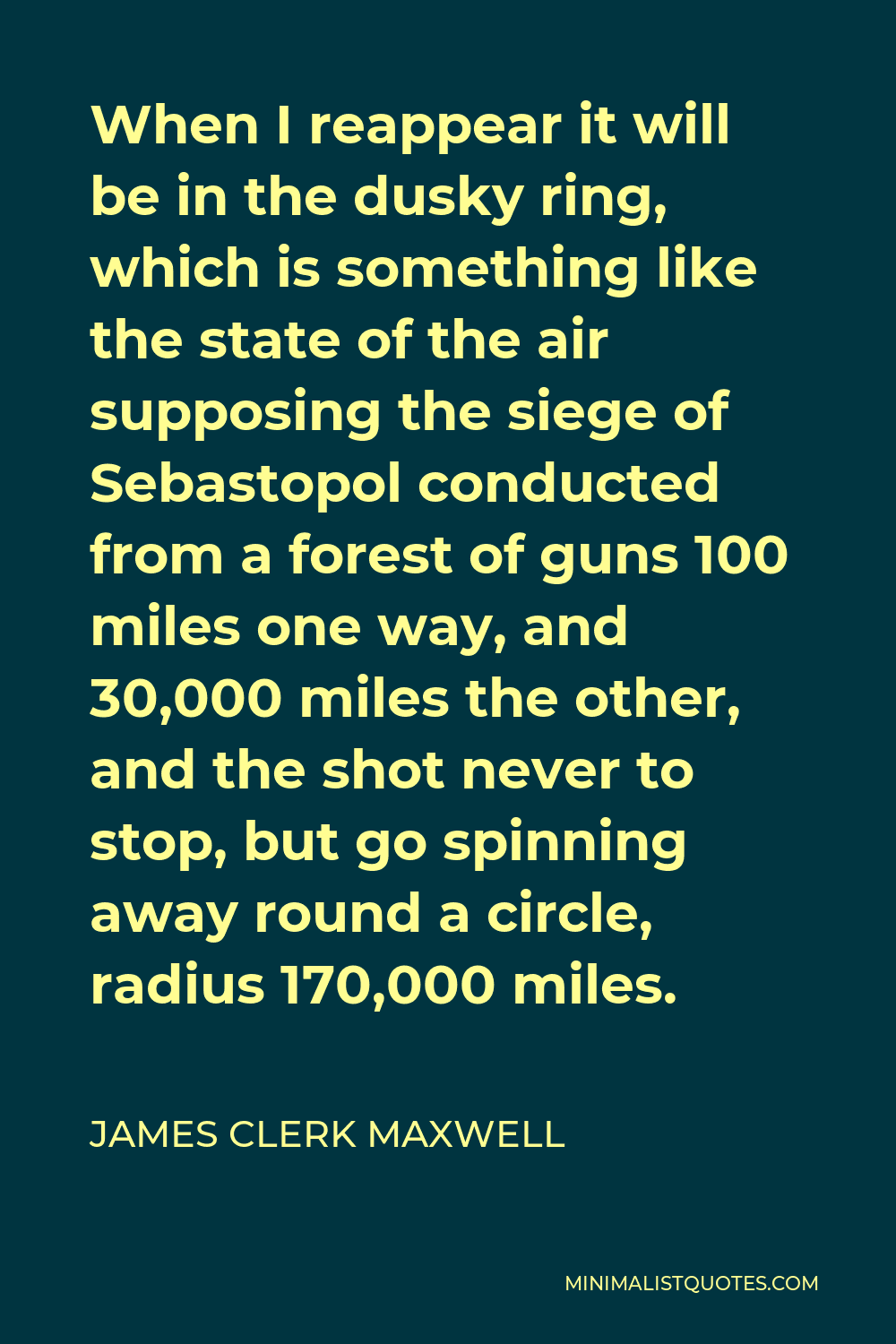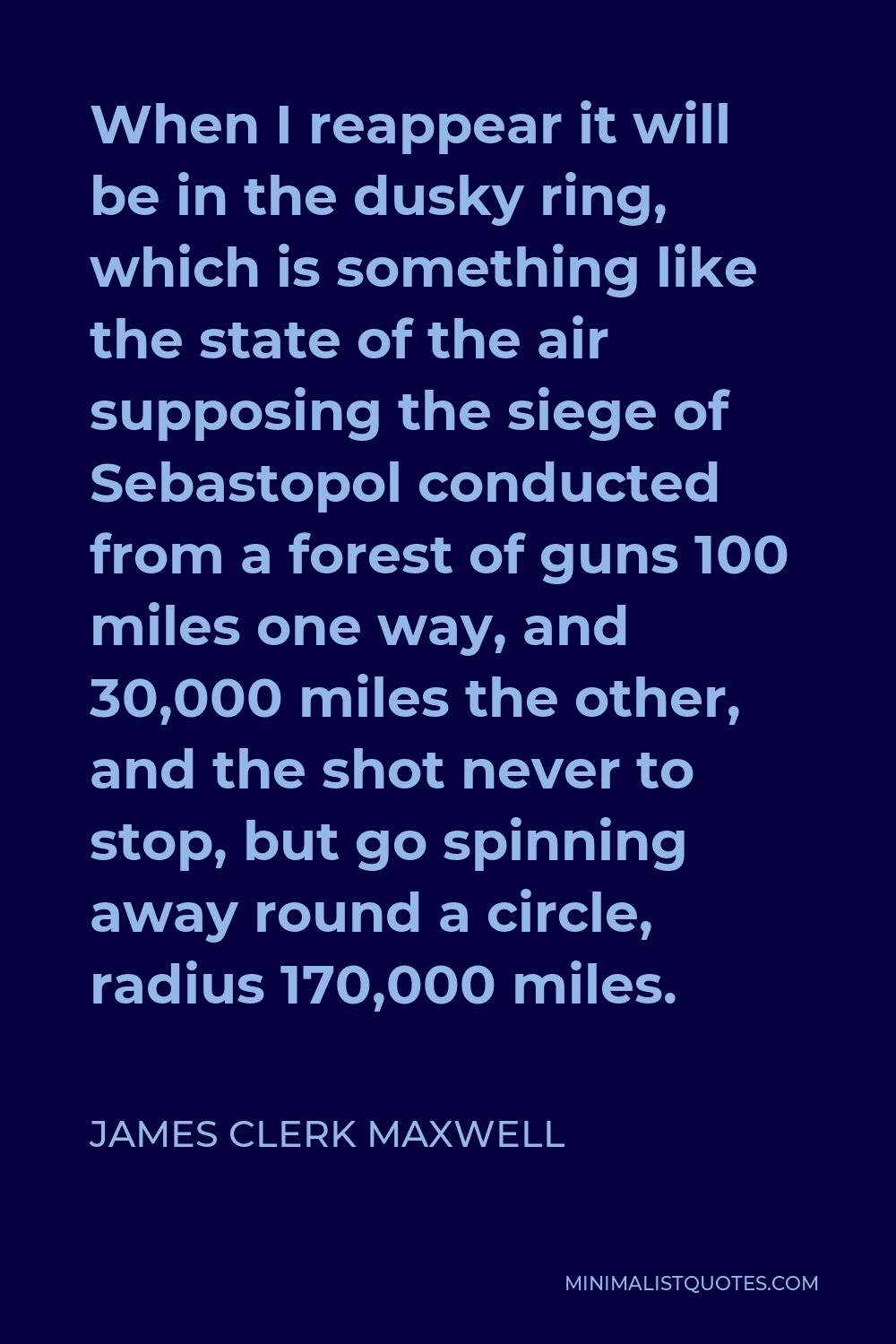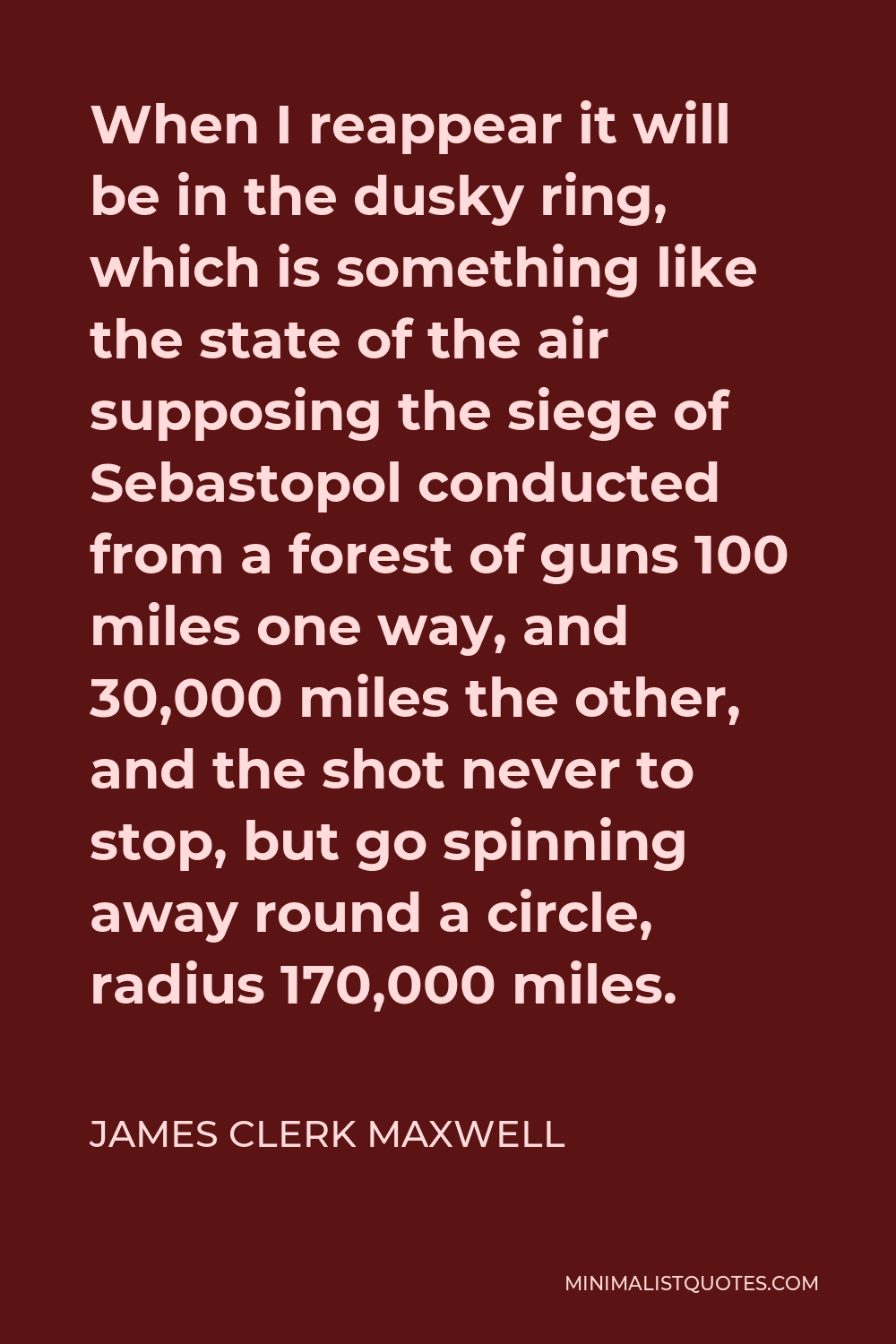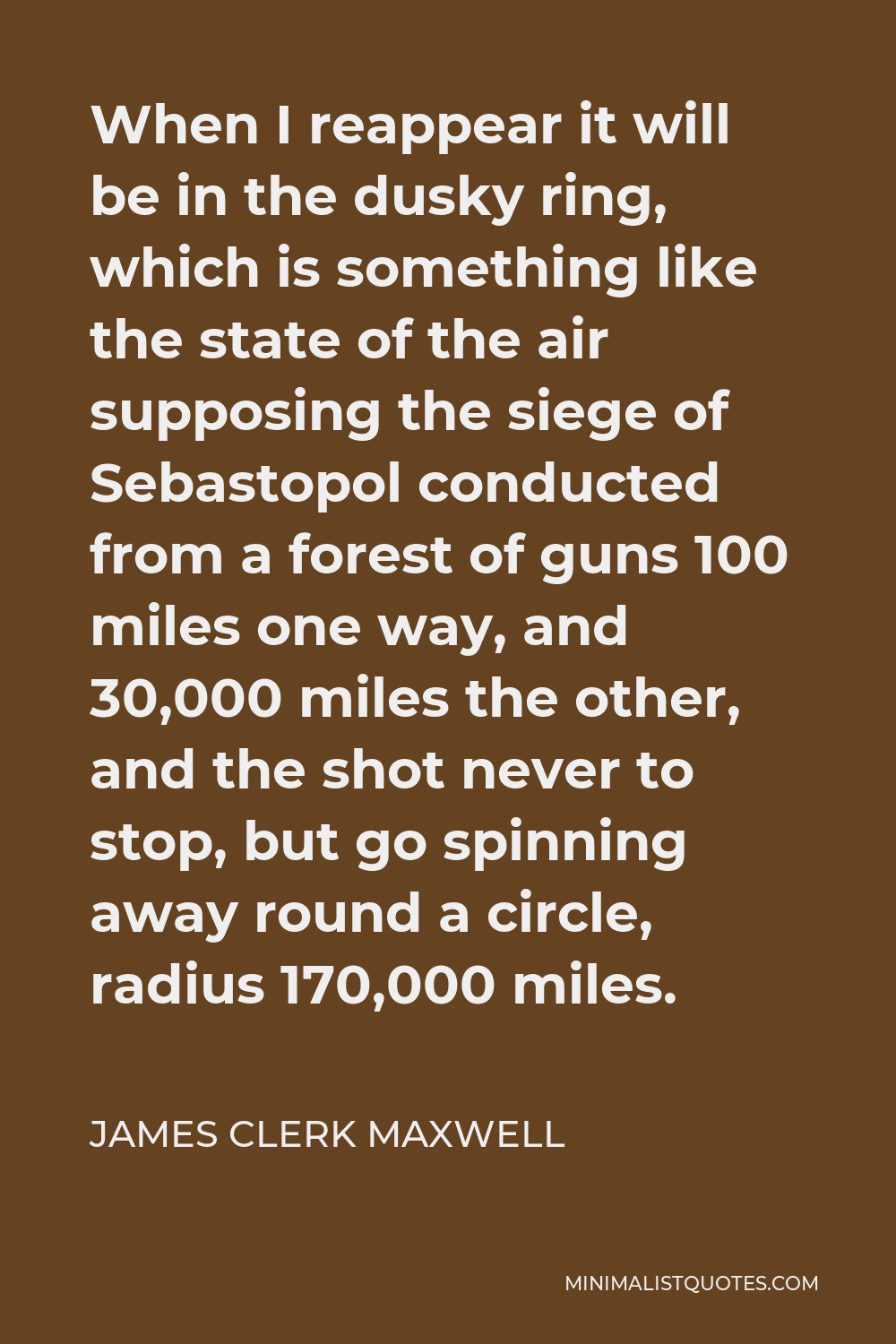I have looked into most philosophical systems and I have seen that none will work without God.
JAMES CLERK MAXWELLWhen I reappear it will be in the dusky ring, which is something like the state of the air supposing the siege of Sebastopol conducted from a forest of guns 100 miles one way, and 30,000 miles the other, and the shot never to stop, but go spinning away round a circle, radius 170,000 miles.
More James Clerk Maxwell Quotes
-





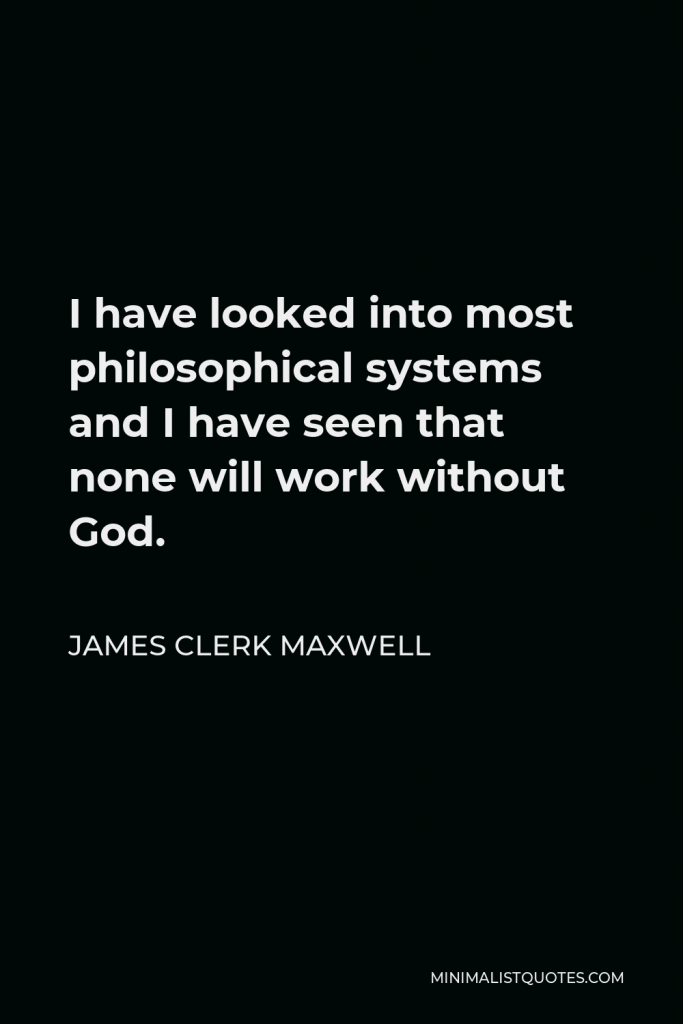

-





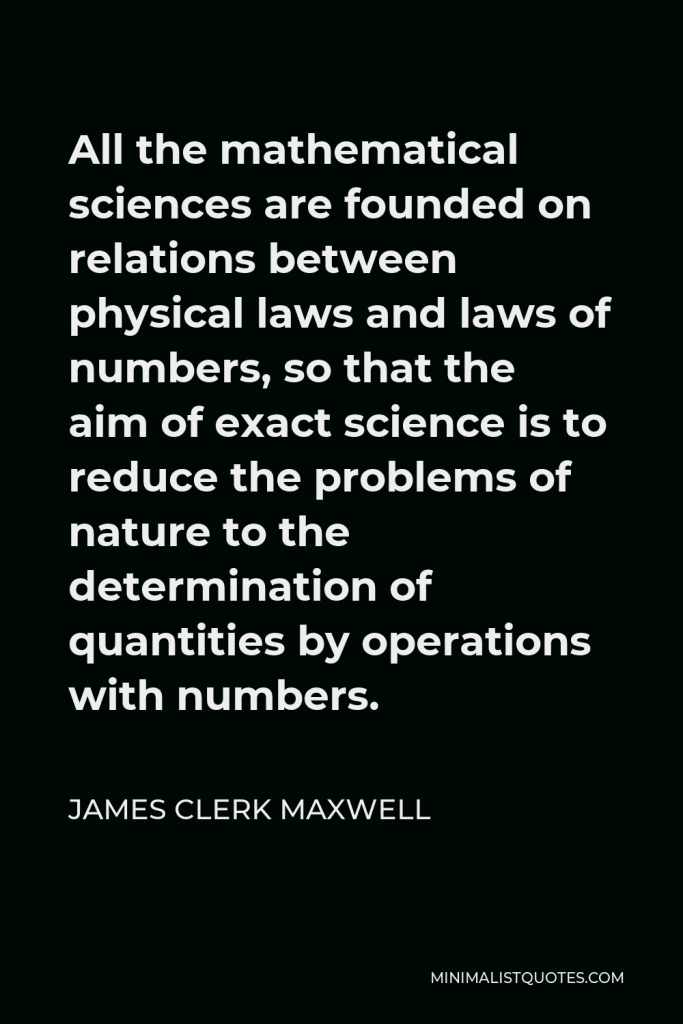

All the mathematical sciences are founded on relations between physical laws and laws of numbers.
JAMES CLERK MAXWELL -





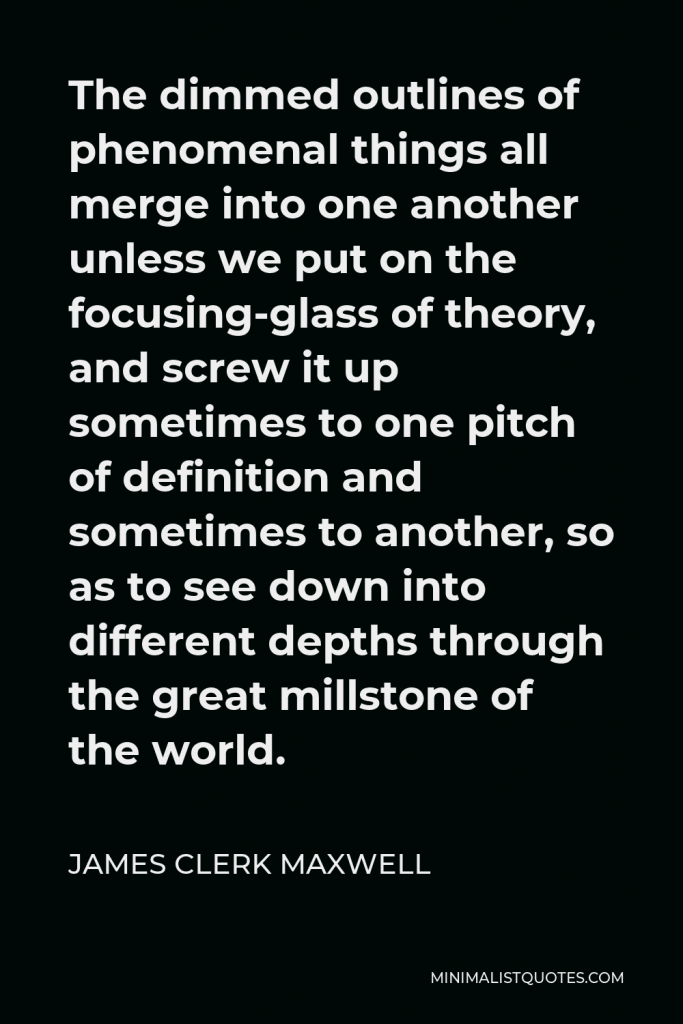

The dimmed outlines of phenomenal things all merge into one another unless we put on the focusing-glass of theory, and screw it up sometimes to one pitch of definition and sometimes to another, so as to see down into different depths through the great millstone of the world.
JAMES CLERK MAXWELL -





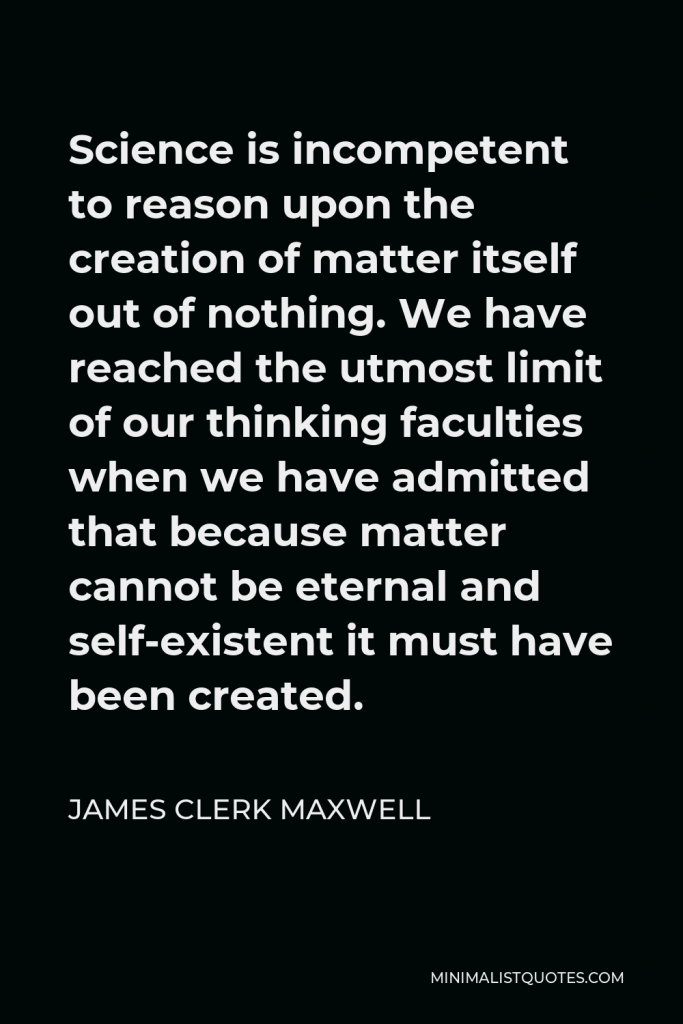

Science is incompetent to reason upon the creation of matter itself out of nothing. We have reached the utmost limit of our thinking faculties when we have admitted that because matter cannot be eternal and self-existent it must have been created.
JAMES CLERK MAXWELL -





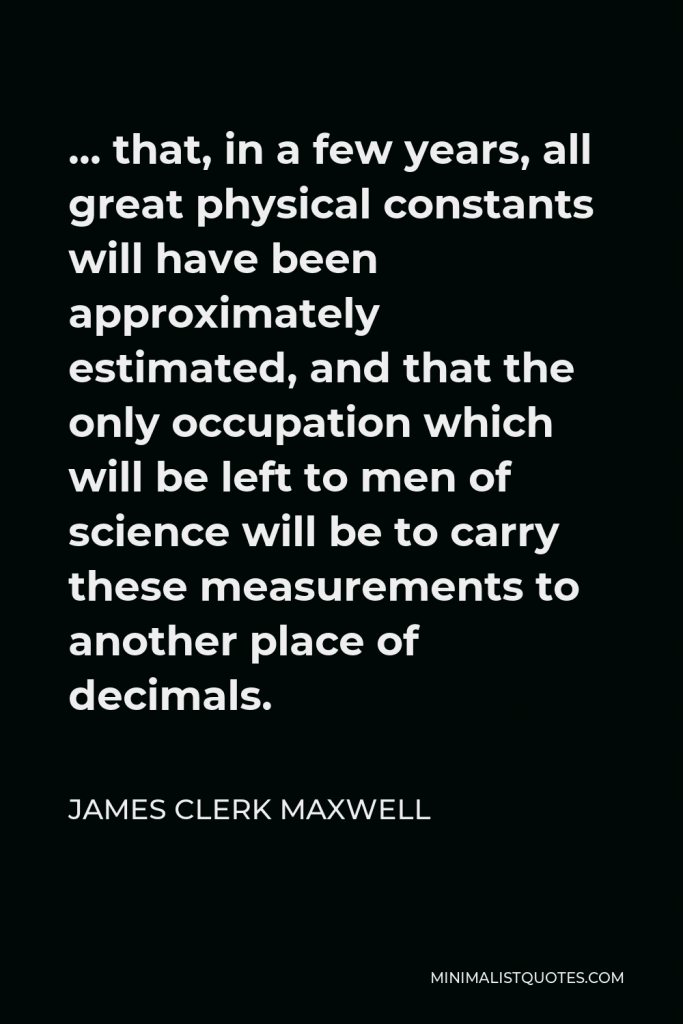

… that, in a few years, all great physical constants will have been approximately estimated, and that the only occupation which will be left to men of science will be to carry these measurements to another place of decimals.
JAMES CLERK MAXWELL -





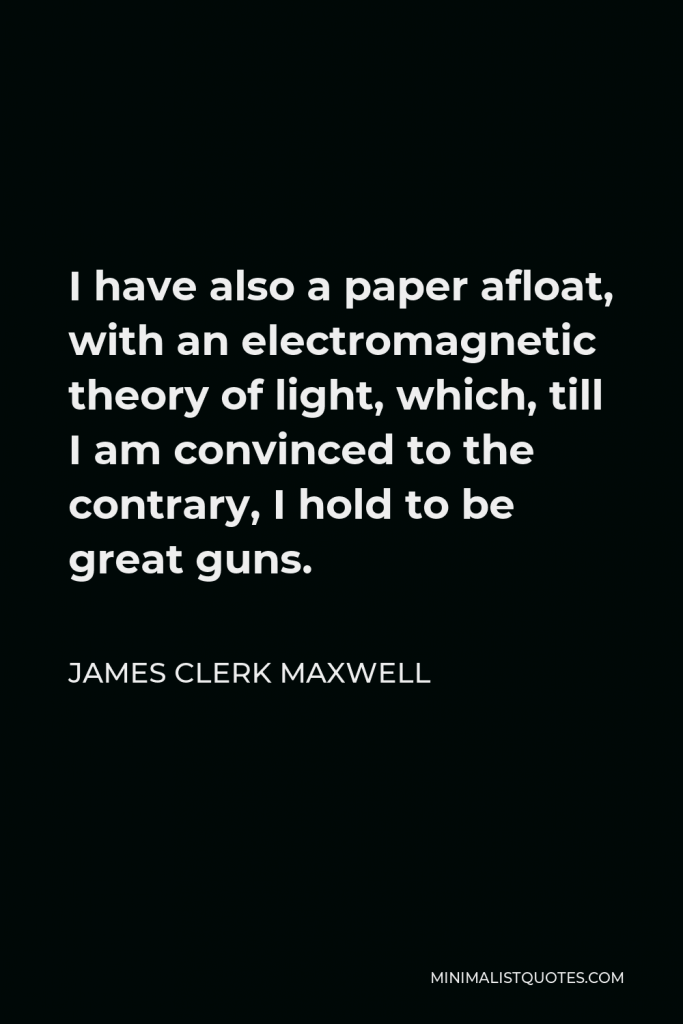

I have also a paper afloat, with an electromagnetic theory of light, which, till I am convinced to the contrary, I hold to be great guns.
JAMES CLERK MAXWELL -





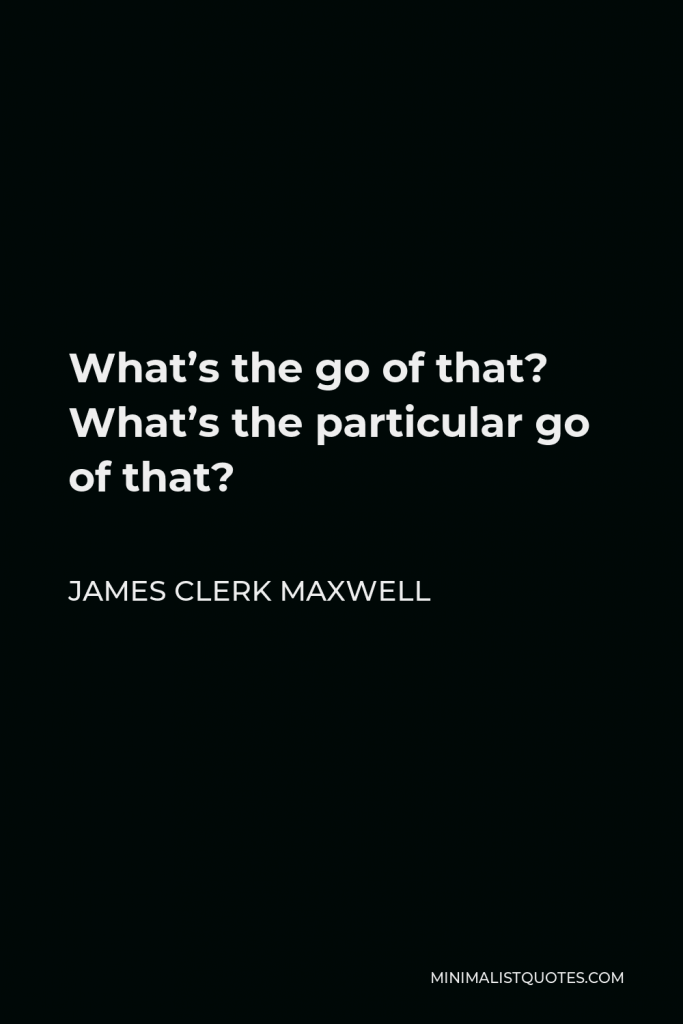

What’s the go of that? What’s the particular go of that?
JAMES CLERK MAXWELL -





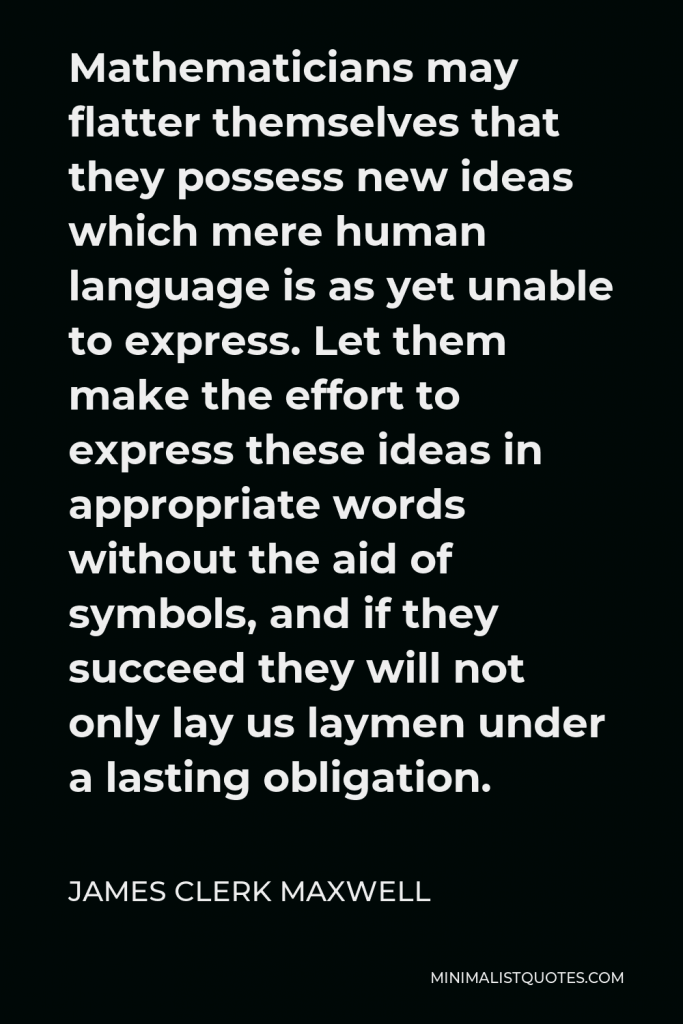

Mathematicians may flatter themselves that they possess new ideas which mere human language is as yet unable to express.
JAMES CLERK MAXWELL -





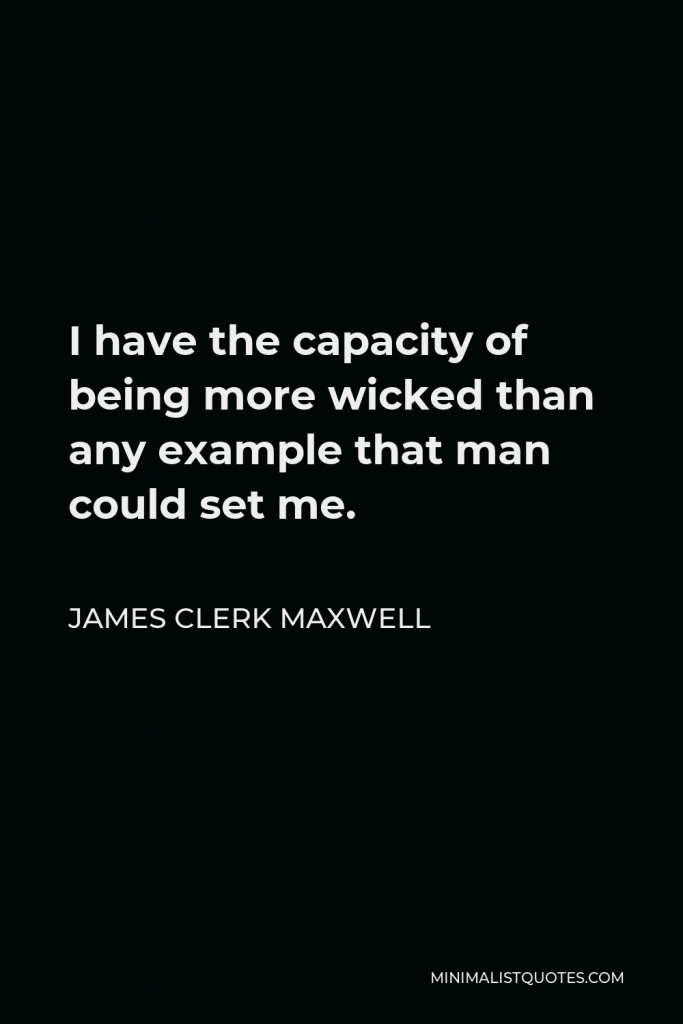

I have the capacity of being more wicked than any example that man could set me.
JAMES CLERK MAXWELL -





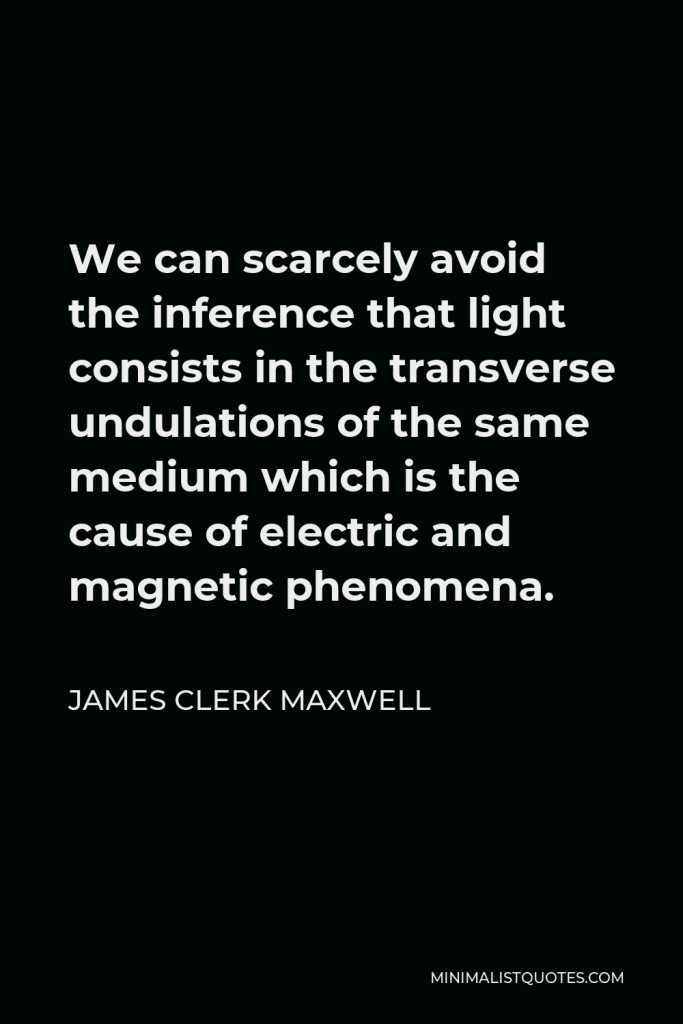

We can scarcely avoid the inference that light consists in the transverse undulations of the same medium which is the cause of electric and magnetic phenomena.
JAMES CLERK MAXWELL -





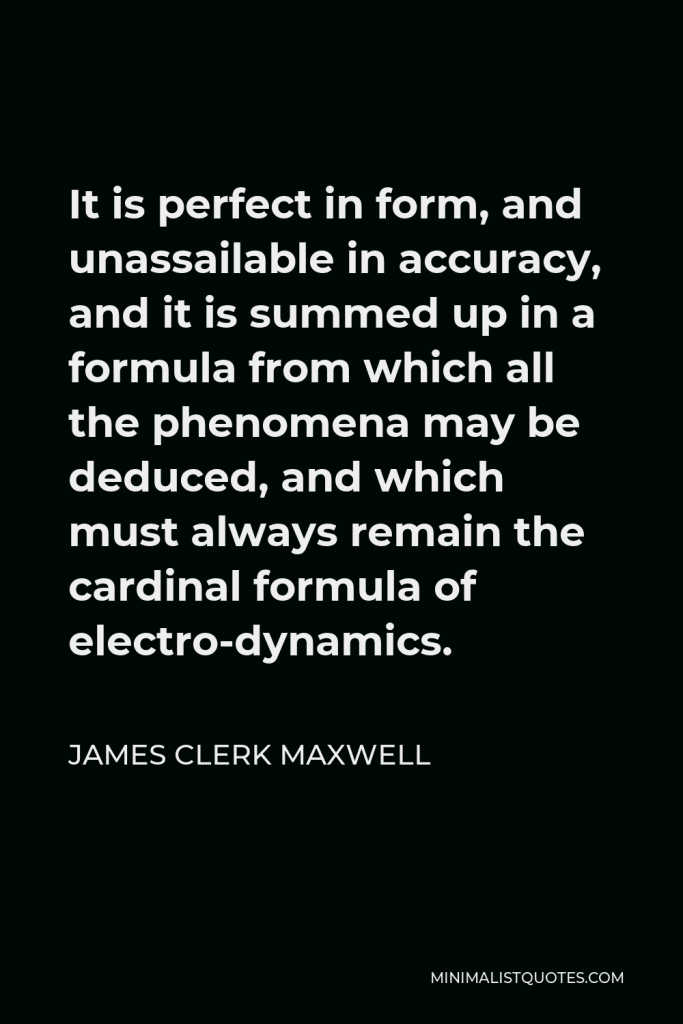

It is perfect in form, and unassailable in accuracy, and it is summed up in a formula from which all the phenomena may be deduced, and which must always remain the cardinal formula of electro-dynamics.
JAMES CLERK MAXWELL -





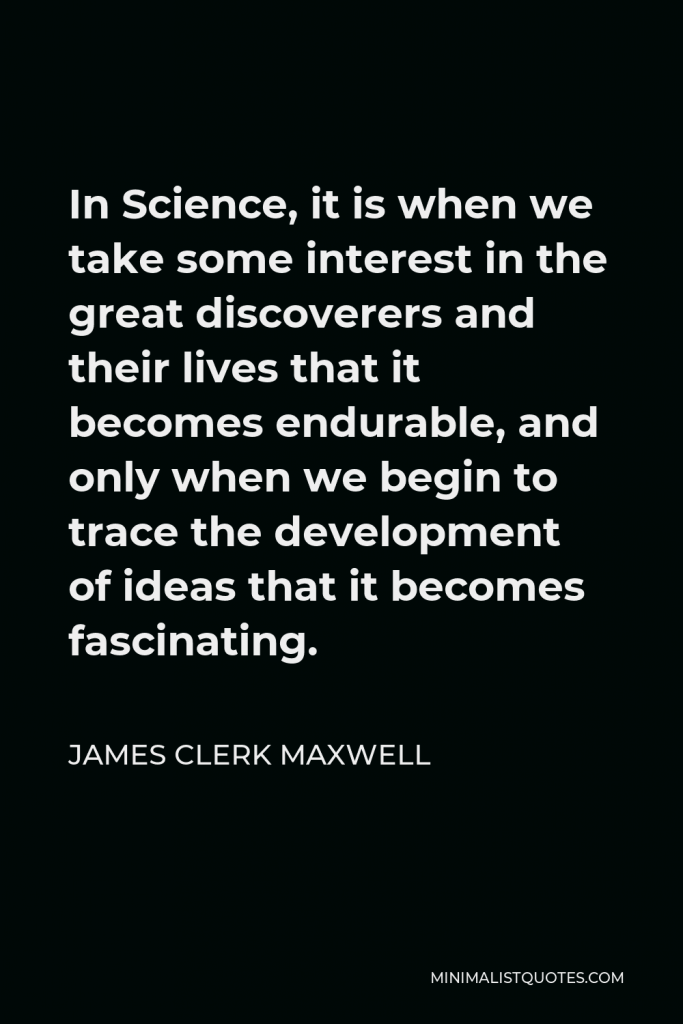

In Science, it is when we take some interest in the great discoverers and their lives that it becomes endurable, and only when we begin to trace the development of ideas that it becomes fascinating.
JAMES CLERK MAXWELL -





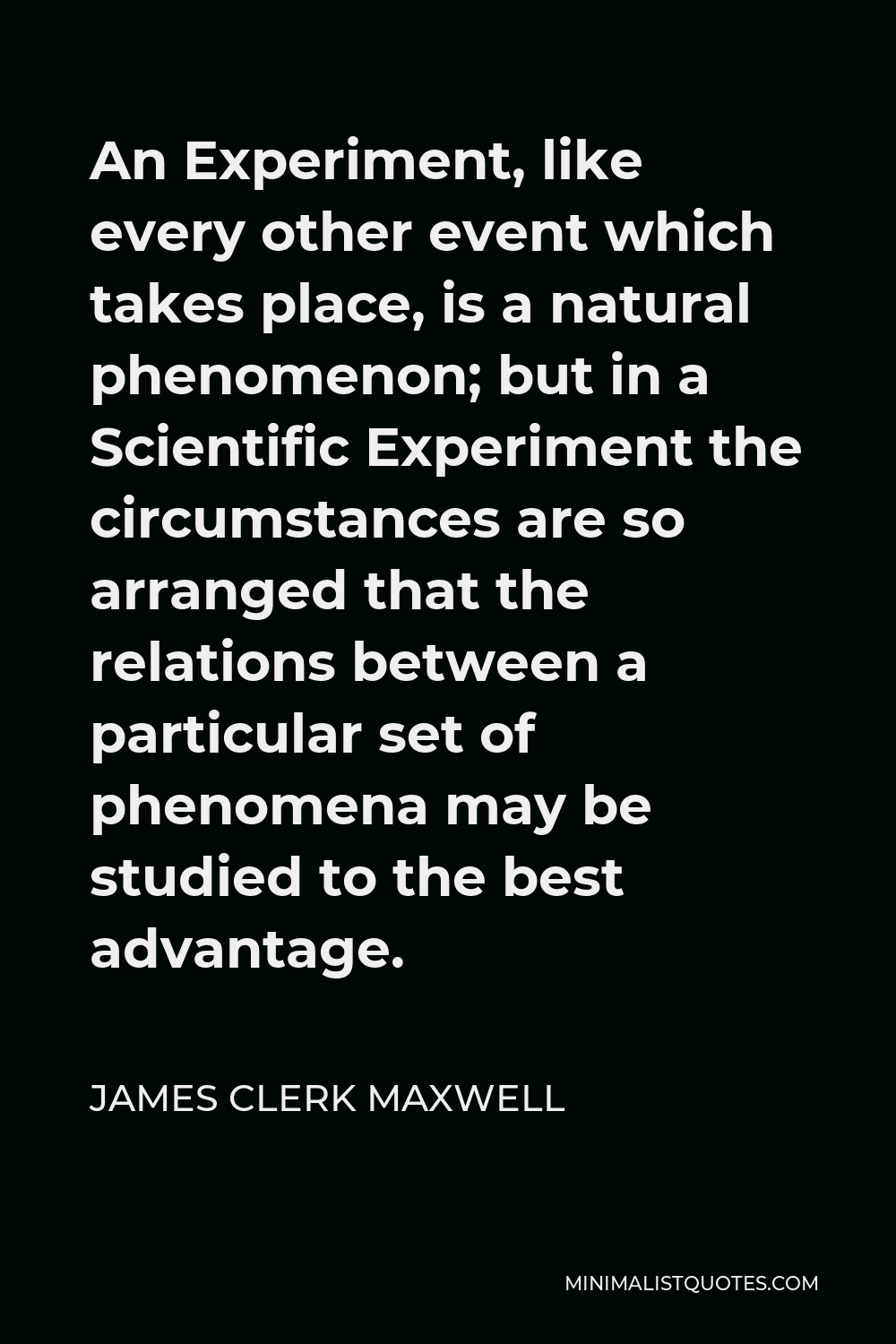
An Experiment, like every other event which takes place, is a natural phenomenon; but in a Scientific Experiment the circumstances are so arranged that the relations between a particular set of phenomena may be studied to the best advantage.
JAMES CLERK MAXWELL -





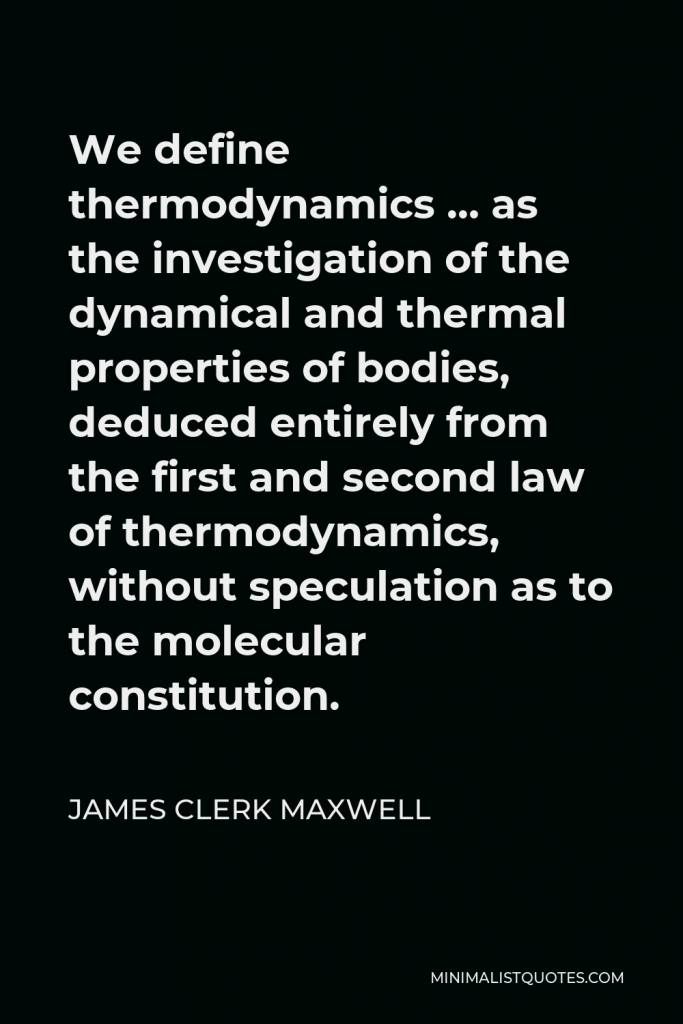

We define thermodynamics … as the investigation of the dynamical and thermal properties of bodies, deduced entirely from the first and second law of thermodynamics, without speculation as to the molecular constitution.
JAMES CLERK MAXWELL -





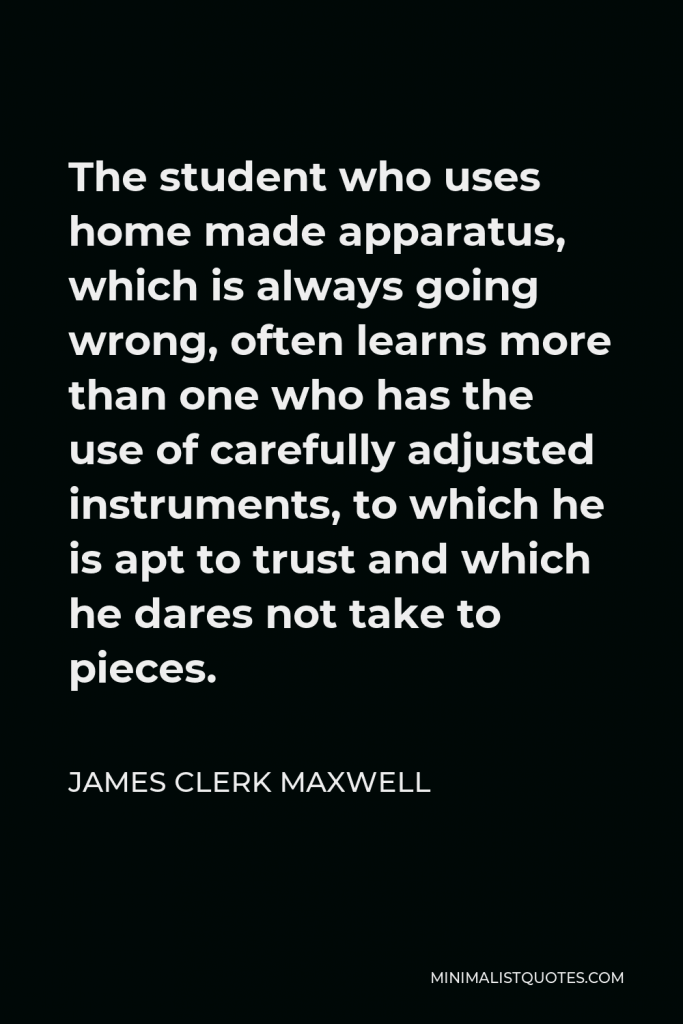

The student who uses home made apparatus, which is always going wrong, often learns more than one who has the use of carefully adjusted instruments, to which he is apt to trust and which he dares not take to pieces.
JAMES CLERK MAXWELL -





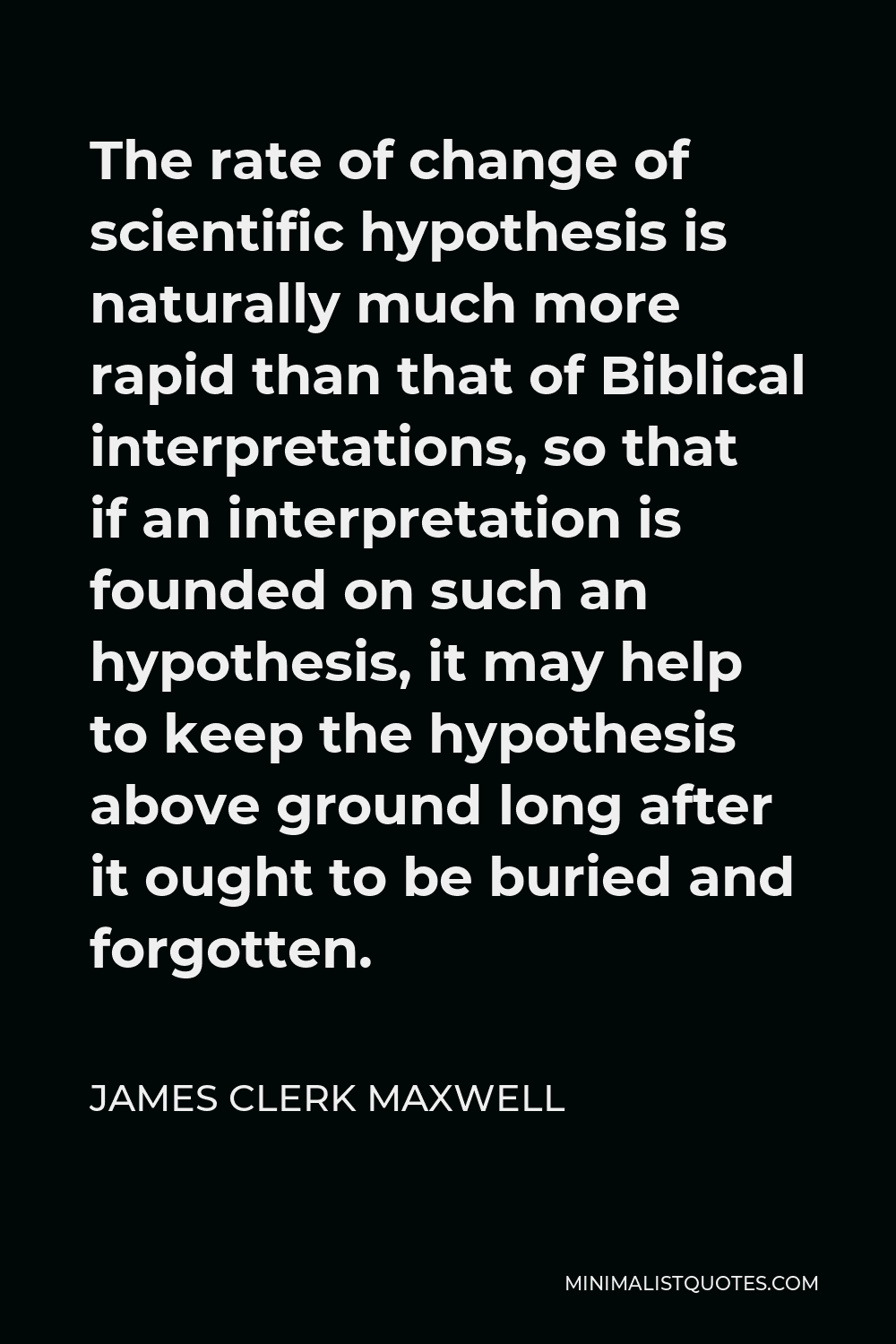
The rate of change of scientific hypothesis is naturally much more rapid than that of Biblical interpretations, so that if an interpretation is founded on such an hypothesis, it may help to keep the hypothesis above ground long after it ought to be buried and forgotten.
JAMES CLERK MAXWELL

